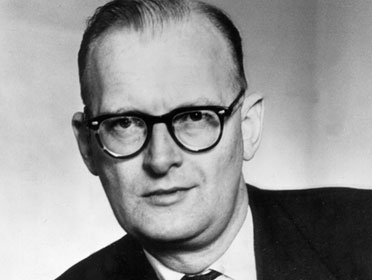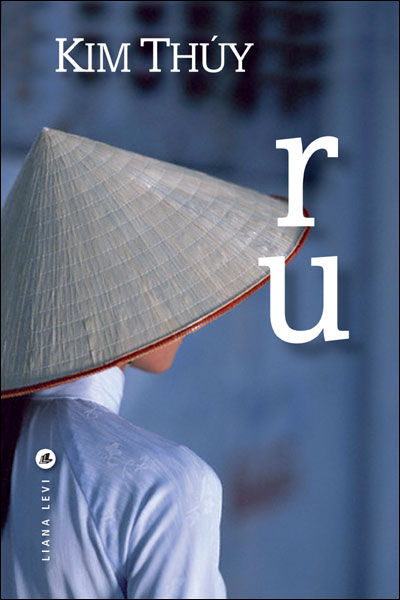 – அண்மையில் மறைந்த விஞ்ஞானப் புனைகதையுலகில் முக்கிய படைப்பாளியாக விளங்கிய ஆர்தர் சி. கிளார்க்கை ஒருமுறை என் வாழ்வில் சந்திக்கும் சந்தர்ப்பம் ஏற்பட்டது. என் வாழ்க்கைச் சரித்திரத்தில் அதுவொரு முக்கிய சந்திப்பாகவும் அமைந்து விட்டது. மொறட்டுவைப் பல்கலைக் கழகத்தில் கட்டடக்கலைப் பட்டப்படிப்பினை முடித்துப் அதற்குரிய சான்றிதழினை கொழும்பு பண்டாரநாயக்க சர்வதேச மண்டபத்தில் நடைபெற்ற மொறட்டுவைப் பல்கலைக்கழகப் பட்டமளிப்பு விழாவில் பெற்றது அவரது கைகளிலிருந்துதான். அவர்தான் அப்பொழுது மொறட்டுவைப் பல்கலைக் கழகத்து வேந்தராக இருந்தார். அவரது நினைவாக இக்கட்டுரை பிரசுரிக்கப்படுகிறது.- இருபதாம் நூற்றாண்டில் விஞ்ஞானப் புனைகதையுலகில் கொடிகட்டிப் பறந்த முக்கியமான மூலவர்களாக மூவர் குறிப்பிடப்படுவார்கள். ஒருவர் ஐசக் அசிமோவ். ரஷிய நாட்டவர். அடுத்தவர் அமெரிக்கரான ரொபேட் ஏ றெய்ன்லெய்ன். இவர் மிசூரியைச் சேர்ந்தவர். அடுத்தவர் ஆர்தர் சி.கிளார்க். இவர் பிரிட்டனைச் சேர்ந்தவர்.
– அண்மையில் மறைந்த விஞ்ஞானப் புனைகதையுலகில் முக்கிய படைப்பாளியாக விளங்கிய ஆர்தர் சி. கிளார்க்கை ஒருமுறை என் வாழ்வில் சந்திக்கும் சந்தர்ப்பம் ஏற்பட்டது. என் வாழ்க்கைச் சரித்திரத்தில் அதுவொரு முக்கிய சந்திப்பாகவும் அமைந்து விட்டது. மொறட்டுவைப் பல்கலைக் கழகத்தில் கட்டடக்கலைப் பட்டப்படிப்பினை முடித்துப் அதற்குரிய சான்றிதழினை கொழும்பு பண்டாரநாயக்க சர்வதேச மண்டபத்தில் நடைபெற்ற மொறட்டுவைப் பல்கலைக்கழகப் பட்டமளிப்பு விழாவில் பெற்றது அவரது கைகளிலிருந்துதான். அவர்தான் அப்பொழுது மொறட்டுவைப் பல்கலைக் கழகத்து வேந்தராக இருந்தார். அவரது நினைவாக இக்கட்டுரை பிரசுரிக்கப்படுகிறது.- இருபதாம் நூற்றாண்டில் விஞ்ஞானப் புனைகதையுலகில் கொடிகட்டிப் பறந்த முக்கியமான மூலவர்களாக மூவர் குறிப்பிடப்படுவார்கள். ஒருவர் ஐசக் அசிமோவ். ரஷிய நாட்டவர். அடுத்தவர் அமெரிக்கரான ரொபேட் ஏ றெய்ன்லெய்ன். இவர் மிசூரியைச் சேர்ந்தவர். அடுத்தவர் ஆர்தர் சி.கிளார்க். இவர் பிரிட்டனைச் சேர்ந்தவர்.

 Kim Thúy’s autobiographical debut novel, Ru, describes a life-changing voyage from a childhood in strife-filled postwar Vietnam to a new beginning in 1970s Quebec. Unflinching in content and strikingly unique in form, the novel is itself an ambitious journey. Despite some moments of digression and occasional instances of thematic overreach, Ru is a poetic and highly individual exploration of what it can mean to straddle multiple cultures and identities simultaneously. The word “Ru” is Vietnamese for lullaby. In French it can signify a stream or flow. A fitting title for this book, given both Ru’s haunting and incantatory writing style and the migratory passage the Montreal-based novelist describes. Sensitively rendered in English by celebrated translator Sheila Fischman, Thúy’s novel originated with a French edition that won the Governor General’s Literary Award for fiction in 2010. Although the first-person narrator of Ru identifies herself in the novel’s opening pages as a woman named Nguyen An Tinh, the author has told the Quebec press that the book’s events accurately reflect her personal recollections of a life characterized by dramatic environmental shifts. That harrowing travelogue includes fleeing from an opulent lifestyle as a South Vietnamese child of privilege, to an overcrowded Malaysian refugee camp, to eventual settlement in and acculturation to Bill 101-era Quebec. In unadorned and dignified prose, Thúy spares no detail about the harsh passage by overfull boat, marked by abundances of scabies and excrement, and equal measures of terror and hope.
Kim Thúy’s autobiographical debut novel, Ru, describes a life-changing voyage from a childhood in strife-filled postwar Vietnam to a new beginning in 1970s Quebec. Unflinching in content and strikingly unique in form, the novel is itself an ambitious journey. Despite some moments of digression and occasional instances of thematic overreach, Ru is a poetic and highly individual exploration of what it can mean to straddle multiple cultures and identities simultaneously. The word “Ru” is Vietnamese for lullaby. In French it can signify a stream or flow. A fitting title for this book, given both Ru’s haunting and incantatory writing style and the migratory passage the Montreal-based novelist describes. Sensitively rendered in English by celebrated translator Sheila Fischman, Thúy’s novel originated with a French edition that won the Governor General’s Literary Award for fiction in 2010. Although the first-person narrator of Ru identifies herself in the novel’s opening pages as a woman named Nguyen An Tinh, the author has told the Quebec press that the book’s events accurately reflect her personal recollections of a life characterized by dramatic environmental shifts. That harrowing travelogue includes fleeing from an opulent lifestyle as a South Vietnamese child of privilege, to an overcrowded Malaysian refugee camp, to eventual settlement in and acculturation to Bill 101-era Quebec. In unadorned and dignified prose, Thúy spares no detail about the harsh passage by overfull boat, marked by abundances of scabies and excrement, and equal measures of terror and hope.

